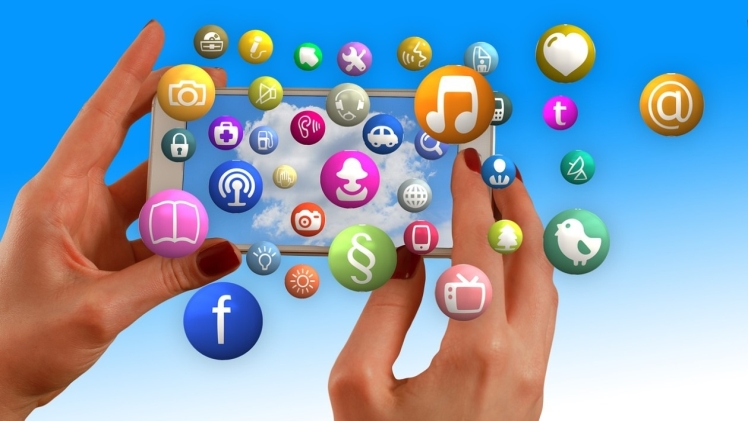Social media, a ubiquitous force in today’s digital age, has transformed the way we communicate, consume information, and connect with the world around us. It has revolutionized the way we share our lives, fostering global connections and enabling us to stay informed about current events and trends. However, this powerful tool also presents challenges, raising concerns about privacy, mental health, and the erosion of face-to-face interactions.
The Rise of Social Media Platforms
The emergence of social media platforms, such as Facebook, Twitter, Instagram, and TikTok, has catapulted us into an era of hyperconnectivity. These platforms provide a virtual space for individuals to share their thoughts, experiences, and creativity with a vast audience, transcending geographical boundaries and connecting people from all walks of life.
The Positive Impact of Social Media
Social media has undoubtedly brought about a plethora of positive benefits. It has fostered global connections, enabling individuals to connect with friends, family, and like-minded people across the world. It has democratized information, providing a platform for diverse voices and perspectives to be heard.
Social media has also emerged as a powerful tool for social activism, raising awareness about important issues and mobilizing individuals to take action. It has also provided a platform for marginalized groups to find their voice and advocate for their rights.
The Dark Side of Social Media
Despite its positive contributions, social media has also raised significant concerns. The constant stream of curated content and carefully crafted online personas can contribute to feelings of inadequacy and low self-esteem. Social media addiction, characterized by excessive and compulsive use, can lead to social isolation, decreased productivity, and negative impacts on mental health.
Moreover, social media has become a breeding ground for misinformation and the spread of harmful content. The rapid dissemination of false information can have detrimental consequences, influencing political opinions, swaying public opinion, and inciting violence.
Privacy Concerns and Data Security
Social media platforms collect vast amounts of personal data about their users, raising concerns about privacy and data security. The potential for misuse of this data by corporations or governments poses serious threats to individual privacy and freedom of expression.
The Erosion of Face-to-Face Interactions
The pervasiveness of social media has led to a decline in face-to-face interactions and the development of shallower connections. The reliance on virtual communication can hinder the development of empathy, social skills, and the ability to build meaningful relationships in the real world.
Navigating the Social Media Landscape Responsibly
To maximize the benefits of social media while mitigating its potential harm, individuals must take a proactive approach to their online engagement. Limiting screen time, curating social media feeds, and engaging with content that promotes positivity and well-being are essential steps.
Critically evaluating information, fact-checking sources, and avoiding the spread of misinformation are crucial to combating the proliferation of false content. Protecting privacy settings, being mindful of the data shared online, and using strong passwords are essential safeguards against privacy breaches.
Promoting Digital Citizenship and Responsible Online Behavior
Educating individuals about digital citizenship and responsible online behavior is critical to fostering a healthier and more productive online environment. Encouraging respectful interactions, promoting empathy, and advocating for responsible content creation can help mitigate the negative aspects of social media.
Conclusion
Social media, like a double-edged sword, presents both opportunities and challenges. It has revolutionized communication, fostered global connections, and provided a platform for diverse voices. However, it also raises concerns about privacy, mental health, and the erosion of face-to-face interactions.
By acknowledging both the benefits and drawbacks of social media, individuals can navigate this complex landscape responsibly, maximizing its positive impact while minimizing its potential harm. As we continue to evolve in this digital age, it is imperative to strike a balance between embracing the power of technology and preserving the authenticity and depth of real-world connections.





